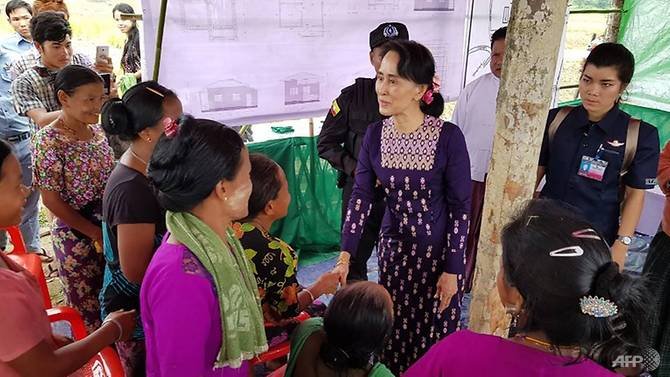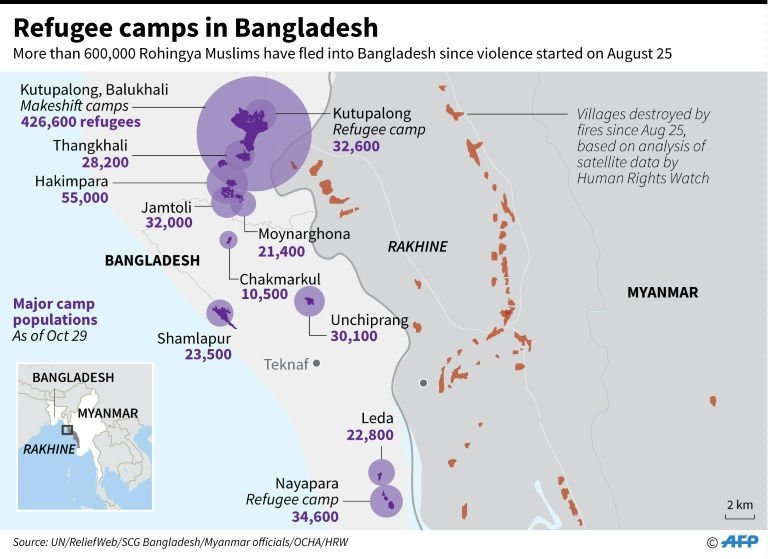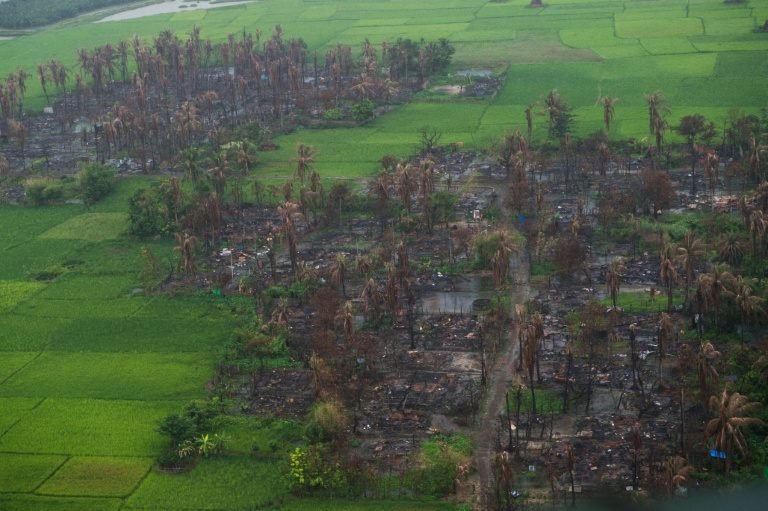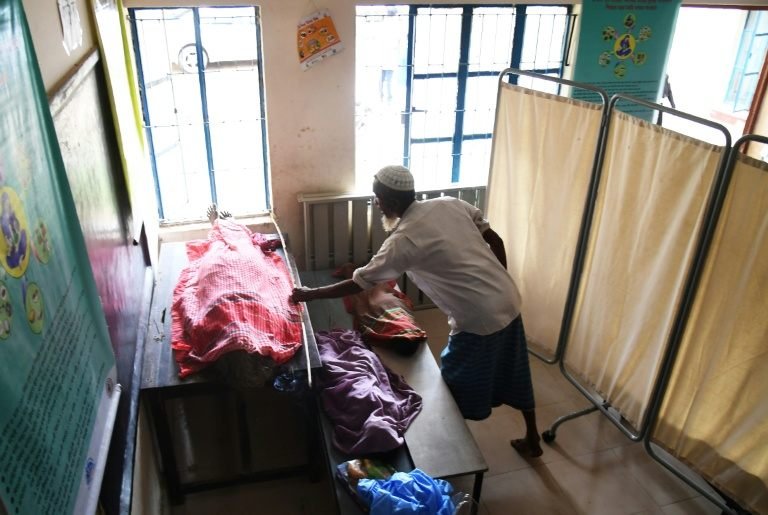Myanmar’s leader Aung San Suu Kyi visited conflict-wracked northern Rakhine for the first time Thursday, under mounting pressure to halt an army crackdown that has forced hundreds of thousands of Rohingya to flee their homes.
Suu Kyi, a nobel laureate who leads Myanmar’s pro-democracy party, has been hammered by the international community for failing to use her moral power to speak up in defence of the Rohingya Muslim minority.

As she arrived in Rakhine State, US Secretary of State Rex Tillerson announced a plan to visit Myanmar for talks next week, and the UN High Commissioner for Refugees demanded that the Rohingya be allowed home as citizens.
Some 600,000 of the stateless minority have fled to Bangladesh since late August carrying accounts of murder, rape and arson at the hands of Myanmar’s powerful army, after militant raids sparked a ferocious military retaliation.
The UN says the army operation is likely tantamount to ethnic cleansing, while pressure has mounted on Myanmar to provide security for the Rohingya and allow people to return home.
Suu Kyi left via state capital Sittwe as evening fell on Thursday after a visit that also took in Maungdaw and Buthidaung in northern Rakhine.

It was her first trip in office to the region, which has seen some of the worst communal violence to cut through the western state since 2012, severely damaging Myanmar’s global reputation.
“The Lady” — as she is known — met with the Rohingya community in Maungdaw town, according to local media, a first for a leader keen to convince observers inside the country and abroad that the crisis has abated and reconstruction can begin.
But it was not clear if Suu Kyi visited some of the hundreds of Rohingya villages torched by the army — allegedly aided by ethnic Rakhine Buddhist locals.
The Rohingya who remain in northern Rakhine are living in fear, surrounded by hostile neighbours, who refuse to let them farm or move freely.

The UN on Thursday again called for unfettered humanitarian access to a zone still under army lockdown.
And Filippo Frandi, the UN High Commissioner for Refugees, declared that not only must the refugees be allowed to return but that they should be accorded full Myanmar citizenship.
“These people cannot remain stateless because this statelessness exposes them to discrimination and abuse, as has been the case in the past,” he told reporters at UN headquarters.

On Thursday around 3,000 Rohingya arrived by land at the Bangladesh border, a sign hunger and fear is still driving people from their homes.
“The army didn’t attack us but made our life very difficult,” Mohammad Zafar, 35, from a village in Buthidaung told AFP at the Bangladesh border.
“We were not paid for any work and couldn’t go to markets. How long is it possible to live like that?”

















